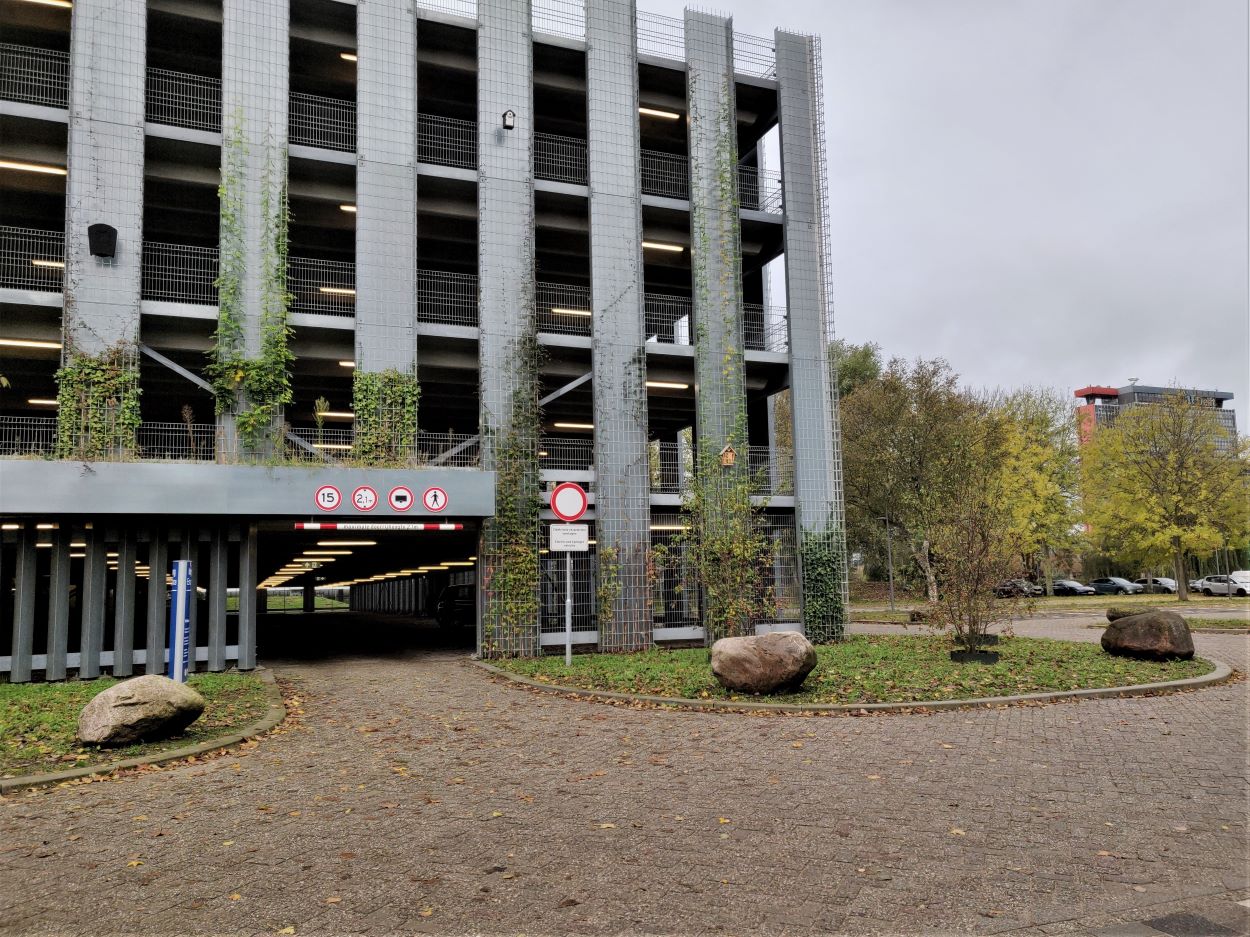The Delft Municipal Executive expressed its understanding for TU Delft’s parking plans in a letter to the Municipal Council. TU Delft wants to regulate the parking.
Parking garage P Sports (Photo: Marjolein van der Veldt)
TU Delft’s parking facilities are currently accessible to the public. If it were up to TU Delft, this will change. TU Delft is thus working on introducing regulated parking (in Dutch).
“We hope to have this arranged by 1 September. At the start of the new academic year, the parking places will then only be accessible to employees, students and contacts of TU Delft. The latter include the staff of companies located on campus,” says the Director of Campus & Real Estate (CRE). If everything goes according to plan, barriers will close off parts of the campus grounds.
Boats and campers
To bring its parking plans about, TU Delft has started an official procedure called onttrekking parkeerplaatsen uit het openbare gebied (removing parking places from the public space) for all 2,515 parking places. Van Noppen explains that “This does not mean that those parking places disappear, but that they will not be available to the public anymore.” As revealed in a letter (in Dutch) to the Municipal Council on Thursday, the Municipal Executive is prepared to cooperate on this. However, whether it happens by 1 September depends on how fast the Municipality of Delft can get things done.
How staff and students will gain access later on is still to be decided
The adjacent neighbourhood of Wippolder has had paid and permit parking since 1 February. Since then, says Noppen, the number of cars parked on the campus grounds has increased. “You even see more boats and campers than before. To be honest, it’s an eyesore.” The Wippolder too had had parking problems for a long time. Up to the introduction of paid parking, a lot of TU Delft employees parked in the neighbourhood.
QR code
How staff and students will gain access to the campus later on is still to be decided. “It could be through a personal QR code, number plate or campus card.”
TU Delft’s Mobility and Accessibility Programme Team is currently looking into how visitors to campus will be given access and if they will have to pay for it. TU Delft is also looking into whether the parking places could be made accessible to the public at certain times, for example in the evenings and weekends. “All the options are open at the moment, from opening the barriers after 18:00 to providing QR codes for major events in Delft.”
TU Delft’s parking policy is part of a wider vision of TU Delft on the campus’ mobility and accessibility. The idea is that staff do not need to look for a parking place themselves in the future, but will be directed to a free spot in a dynamic parking system. Another plan is to “move from several fragmented parking places spread around campus to a few large parking areas on the borders of the TU Delft campus grounds.” Examples of large parking facilities are the multi-storey car park on the Rotterdamseweg that is currently being built, and P Sports that started being used last year.
Do you have a question or comment about this article?
a.m.debruijn@tudelft.nl


Comments are closed.